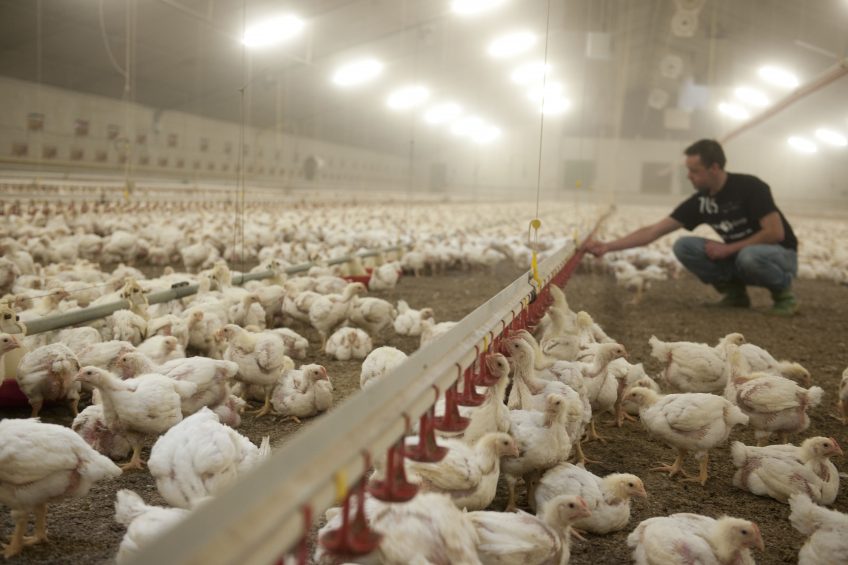Facing the Flock: The Growing Challenges of Poultry Farming in a Changing World
It is with careful attention that we proceed into the compelling matter surrounding Facing the Flock: The Growing Challenges of Poultry Farming in a Changing World. Together, let’s weave meaningful information and fresh perspectives for our audience.
Video about Facing the Flock: The Growing Challenges of Poultry Farming in a Changing World
Facing the Flock: The Growing Challenges of Poultry Farming in a Changing World

Poultry farming, a cornerstone of global food security, faces a myriad of challenges in the 21st century. From safeguarding animal welfare to grappling with environmental concerns, the industry must navigate a complex terrain to ensure sustainability and ethical practices. This article delves into the multifaceted challenges confronting poultry farmers, exploring both current issues and emerging threats.
Disease Outbreaks: A Constant Threat
Disease outbreaks remain a perennial worry for poultry farmers, threatening flocks, livelihoods, and global food supplies. Highly contagious diseases like avian influenza (bird flu), Newcastle disease, and Marek’s disease can decimate entire flocks within days, causing significant economic losses. The rapid spread of these diseases, often facilitated by international trade and inadequate biosecurity measures, necessitates constant vigilance and swift action.
The Rise of Antibiotic Resistance
The overuse of antibiotics in poultry farming has fueled the alarming rise of antibiotic-resistant bacteria. This growing concern poses a serious threat to human health, as resistant bacteria can spread from poultry to humans through contaminated food or contact. The World Health Organization (WHO) has sounded the alarm on this issue, urging responsible antibiotic stewardship and alternative strategies to combat disease in poultry.
Environmental Impacts: Searching for Sustainable Solutions
Poultry farming’s environmental footprint is significant. The industry generates substantial waste, including manure and spent litter, which can contaminate waterways and contribute to greenhouse gas emissions. Intensive production systems, with high stocking densities, can also lead to soil degradation and antibiotic pollution. Farmers are increasingly exploring sustainable practices like anaerobic digestion of manure, composting, and reducing reliance on antibiotics to mitigate these impacts.
Market Volatility: From Feast to Famine
Poultry farmers are at the mercy of volatile market prices, influenced by factors like feed costs, consumer demand, and disease outbreaks. Fluctuations in egg and chicken prices can significantly impact farm incomes, leaving farmers vulnerable to economic hardship. Diversifying production, exploring niche markets, and implementing effective risk management strategies are crucial for navigating this uncertainty.
Labor Shortages: Finding and Retaining Skilled Workers
Finding and retaining skilled labor is a growing challenge for poultry farmers. The industry requires a workforce with specific knowledge and skills, from animal care to biosecurity management. Labor shortages can lead to productivity losses, compromised animal welfare, and difficulties in meeting market demands.
Animal Welfare: Balancing Production with Compassion
Concerns about animal welfare are increasing, especially regarding intensive production systems. Battery cages for laying hens, for example, have been widely criticized for restricting natural behaviours. Consumers are increasingly demanding higher welfare standards, leading to a growing market for free-range and organic poultry. Farmers must adapt to these changing expectations by implementing practices that prioritize animal well-being.
Technological Advancements: Embracing Innovation
Technology offers both opportunities and challenges for poultry farming. Precision farming techniques, automated feeding systems, and disease surveillance tools can improve efficiency, productivity, and animal health. However, the high cost of adopting new technologies can be a barrier for some farmers, and data security concerns need to be addressed.
Climate Change: Adapting to a Changing Landscape
Climate change poses a significant threat to poultry farming. Rising temperatures, extreme weather events, and changes in water availability can impact feed supply, disease outbreaks, and overall farm productivity. Farmers need to adapt their practices to these changing conditions, exploring strategies like drought-resistant breeds, efficient water management, and renewable energy sources.
Looking Ahead: A Future of Sustainability and Resilience
Poultry farming faces numerous challenges, but it also presents opportunities for innovation and improvement. By embracing sustainable practices, investing in research and technology, and prioritizing animal welfare, the industry can contribute to a more secure and ethical food system for the future. Collaboration between farmers, researchers, policymakers, and consumers is crucial for addressing these challenges and building a more resilient and sustainable poultry industry.
Closure
Thus, we hope this article has clarified important points on Facing the Flock: The Growing Challenges of Poultry Farming in a Changing World. Thank you for your attention and time. Until the next one!.

No comments:
Post a Comment